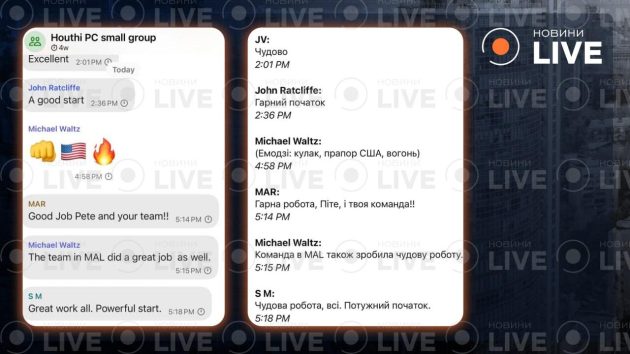

*The Atlantic* editor Jeffrey Goldberg inadvertently became the master of US military plans through a Signal group chat — two hours before the bombing of Yemen.

On March 12, 2025, the journalist unexpectedly found himself in a closed chat “Houthi PC small group,” where top officials of the new Trump administration, including Vice President J. D. Vance, Defense Secretary Pete Hegsetts, and adviser Michael Waltz, were discussing a secret military operation against the Houthis in Yemen. After several days of correspondence, on March 15, Goldberg received a message with the exact schedule of attacks, types of weapons and targets for strikes. He watched the attacks live from a parked car. The White House later confirmed the authenticity of the correspondence, explaining that the journalist had been added by mistake.
After Hamas attacked Israel in 2023, the Iranian-backed Houthis stepped up attacks on shipping and infrastructure, to which the Biden administration responded with restraint. Trump promised a tough response, and it was this response that was coordinated in the scandalous chat. The participants discussed geopolitical risks, pressure on Europe, possible economic consequences, and the timeframe for strikes. Most surprisingly, the discussion took place not through an official system, but through Signal, a private messaging app that is not designed to transmit classified information.
The story not only exposed the dangerous frivolity of the new US administration, but also a potential violation of the law: Signal is not authorized to exchange classified information, and its auto-delete feature violates government records retention requirements. While officials may have the right to declassify data, the very fact of the communication and the inclusion of outsiders raises questions about basic national security standards.


